Doctor of Medicine Studies New Biomarker Revealing High Risk of Lymph Node Metastasis in Non-Specific Colorectal Adenocarcinoma
Doctor of Medicine Studies New Biomarker Revealing High Risk of Lymph Node Metastasis in Non-Specific Colorectal Adenocarcinoma
Held in the Postgraduate Hall on the 3rd Floor of the Postgraduate Building, Udayana University, the Doctor of Medicine Program in Medical Sciences, Faculty of Medicine, Udayana University, held an open doctoral promotion defense with Dr. Ni Putu Ekawati, S.Ked., M.Repro., Sp.PA., as the candidate for the defense, entitled "High Expression of C-Met Protein, Vascular Endothelial Growth Factor-C, and Programmed Death-Ligand 1 in Non-Specific Colorectal Adenocarcinoma as a Risk Factor for Regional Lymph Node Metastasis." (July 28, 2025)
Lymph node involvement in colorectal adenocarcinoma is crucial for patient prognosis. The use of several histopathological parameters as risk factors for colorectal adenocarcinoma metastasis to lymph nodes has been less than satisfactory. Therefore, stronger biomarkers are needed as risk factors for lymph node metastasis, particularly those related to tumor cell proliferation, invasion of blood vessels and lymph nodes, and tumor evasion mechanisms. This study aims to demonstrate a higher risk of regional lymph node metastasis in patients with high c-MET, VEGF-C, and PD-L1 protein expression compared to those with low c-MET, VEGF-C, and PD-L1 protein expression in colorectal adenocarcinoma of unspecified type (CAR).
This unpaired, nested case-control study used 46 CAR patients in the Anatomical Pathology Laboratory of Prof. Dr. I.G.N.G. Ngoerah General Hospital, Denpasar, from January 1, 2020, to December 31, 2023. They were divided into 23 cases and 23 controls. Evaluation of c-MET, VEGF-C, and PD-L1 protein expression was performed using immunohistochemistry. To assess the role of c-MET, VEGF-C, and PD-L1 proteins as risk factors for regional lymph node metastasis, chi-square tests, odds ratio tests, and logistic regression analyses were performed with a significance level of p < 0.05.
The risk of regional lymph node metastasis was 17.1 times higher in AKTS with high c-Met protein expression (OR = 17.1; 95% CI = 3.95-73.95; p = < 0.001), high VEGF-C (OR = 10.86; 95% CI = 2.96-43.89; p = 0.001), and high PD-L1 (OR = 16.33; 95% CI = 0.306-87.18; p = < 0.001) compared to AKTS with low c-Met, VEGF-C, and PD-L1 expression. Multivariate logistic regression analysis in this study also found that high-grade tumor budding was a risk factor for regional lymph node metastasis in AKTS, higher than high PD-L1 expression, with a 96.6% probability of metastasis.
This study concluded that high c-MET, VEGF-C, and PD-L1 protein expression are independent risk factors for regional lymph node metastasis in AKTS.
This examination was led by the Dean of the Faculty of Medicine, Udayana University, Prof. Dr. dr. Komang Januartha Putra Pinatih, M.Kes., with the following examiners:
1. Prof. Dr. dr. I Gusti Ayu Sri Mahendra Dewi, Sp.PA., Subsp.O.G.P(K) (Promoter)
2. Dr. dr. Putu Anda Tusta Adiputra, Sp.B., Subsp.Onk(K) (Co-promoter I)
3. Dr. dr. Ni Putu Sriwidyani, Sp.PA., Subsp.S.M(K) (Copromotor II)
4. Prof. Dr. Dr. I Made Jawi, M. Kes
5. Prof. Dr. Dr. I Wayan Putu Sutirta Yasa, M.Si
6.Dr. Dr. Ni Made Linawati, S.Ked., M.Sc
7.Dr. Dr. Ida Ayu Ika Wahyuniari, M.Kes
8.Dr. Dr. Dewa Ayu Agus Sri Laksemi, M.Sc
9.Dr. Dr. Putu Ayu Asri Damayanti, M.Kes
By academic invitation:
1.Dr. Dr. I Made Muliarta, S.Ked., M.Kes
2.Dr. Dr. Ni Wayan Winarti, S.Ked., Sp.PA., Subsp.U.R.L(K)
3.Dr. Dr. I Wayan Juli Sumadi, Sp.PA., Subsp.M.S(K)
4. Dr. Ida Ayu Dewi Wiryanthini, S.Ked., M.Biomed.
5. Dr. dr. Ni Made Renny Anggreni Rena, Sp.PD., KHOM., FINASIM
During this examination, Dr. dr. Ni Putu Ekawati, S.Ked., M.Repro., Sp.PA., was declared the 465th graduate Degree of the Doctoral Program in Medical Sciences, Faculty of Medicine, Udayana University, with a Very Satisfactory Grade.
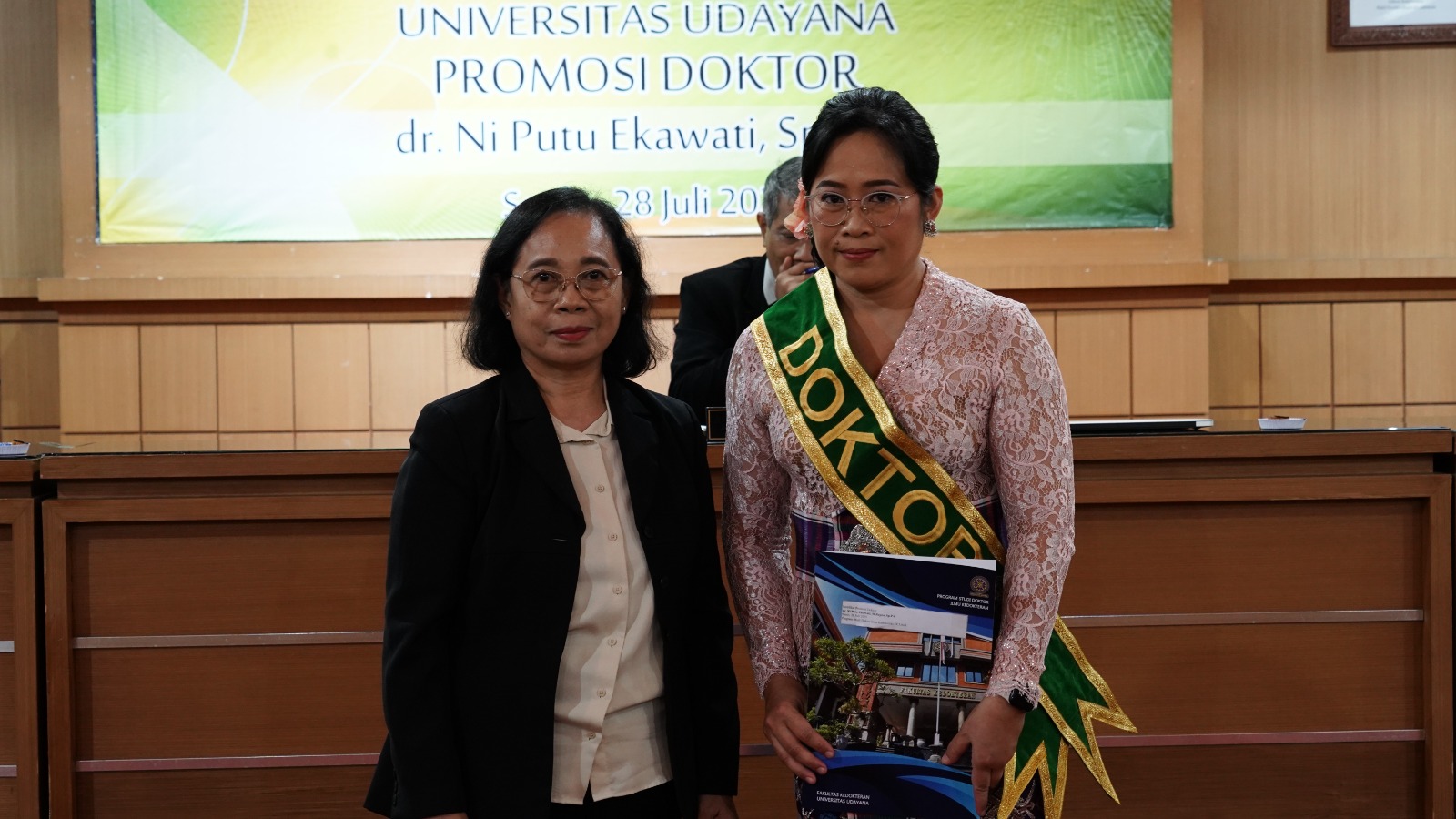
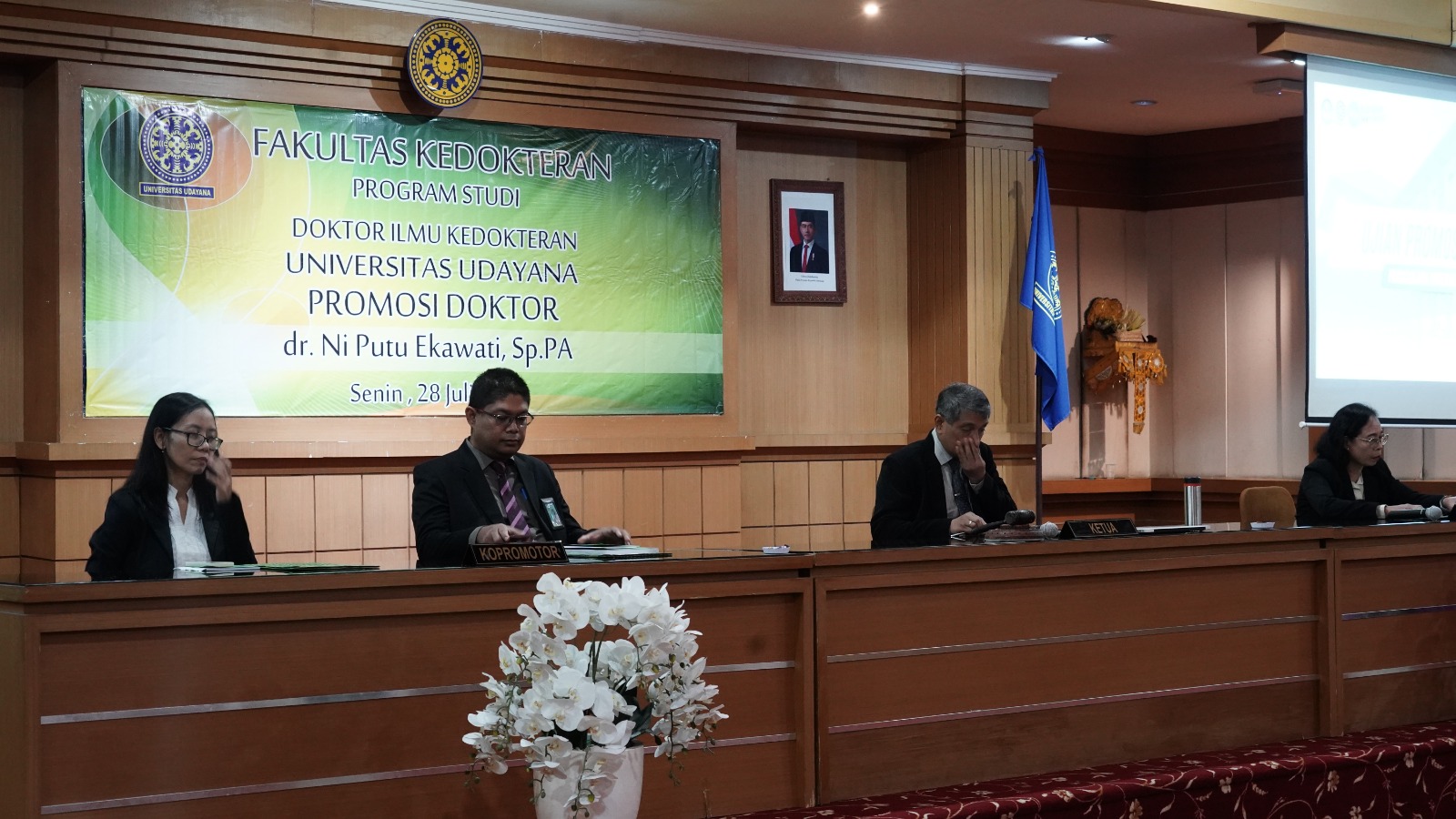
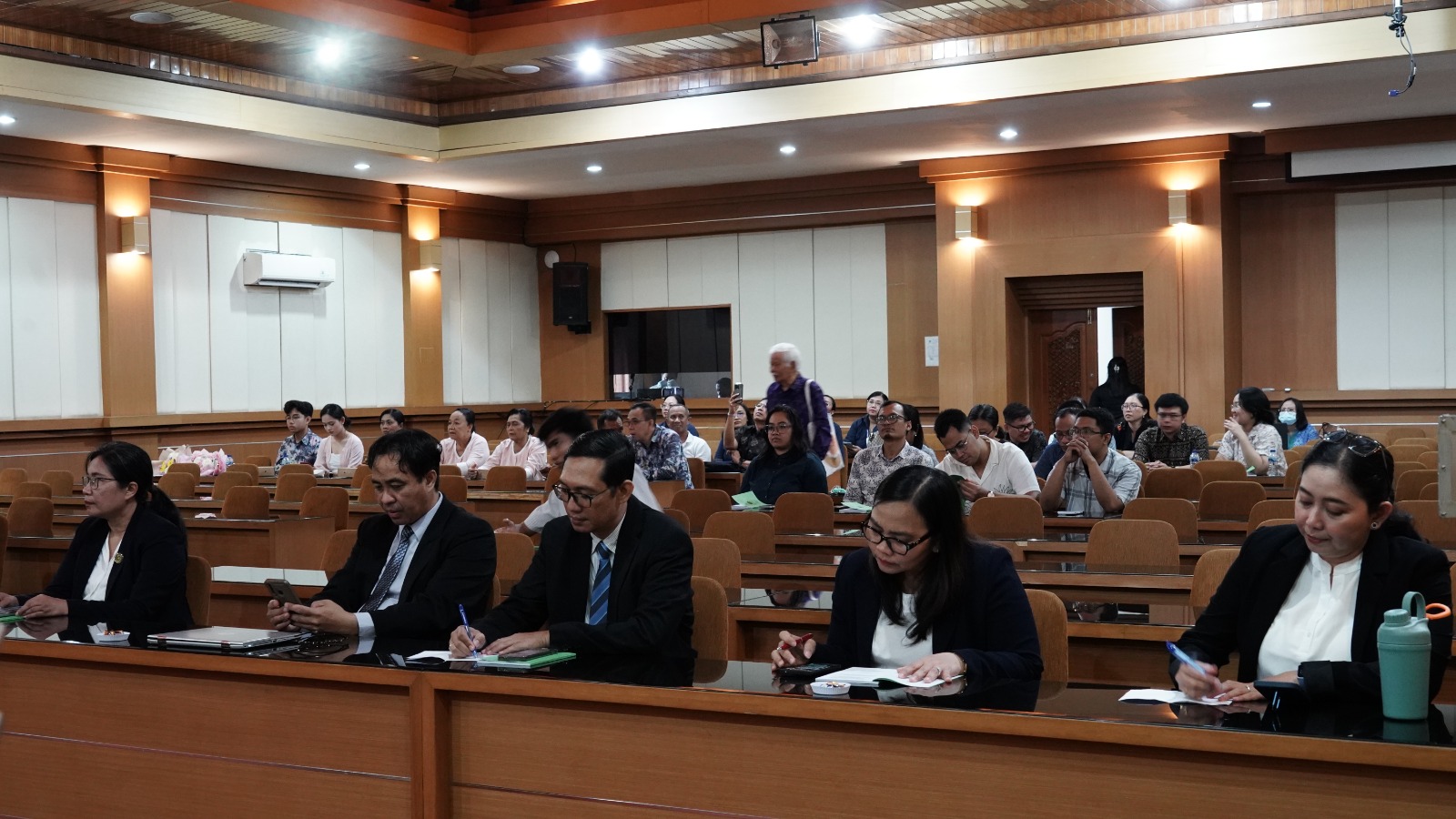
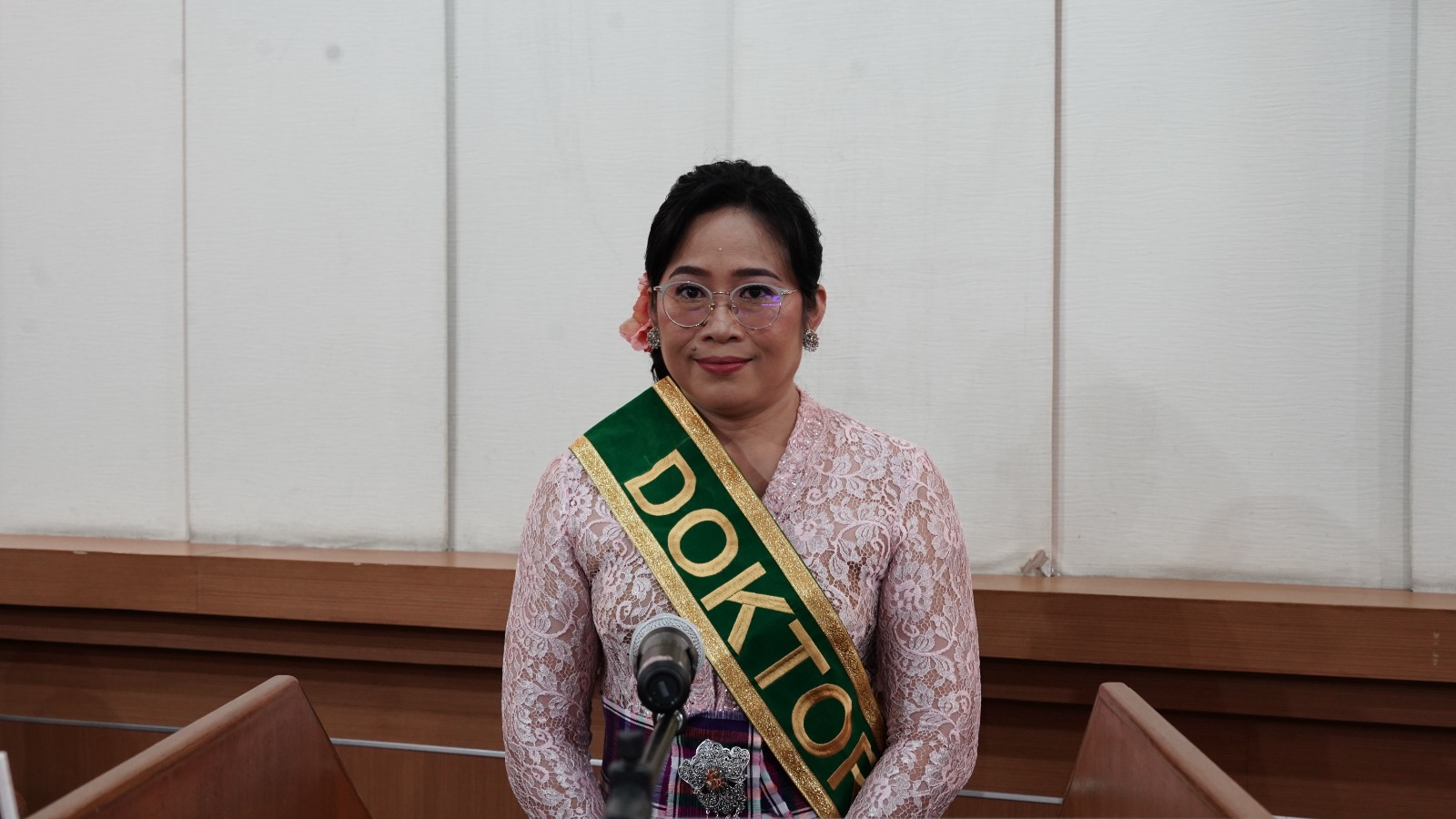
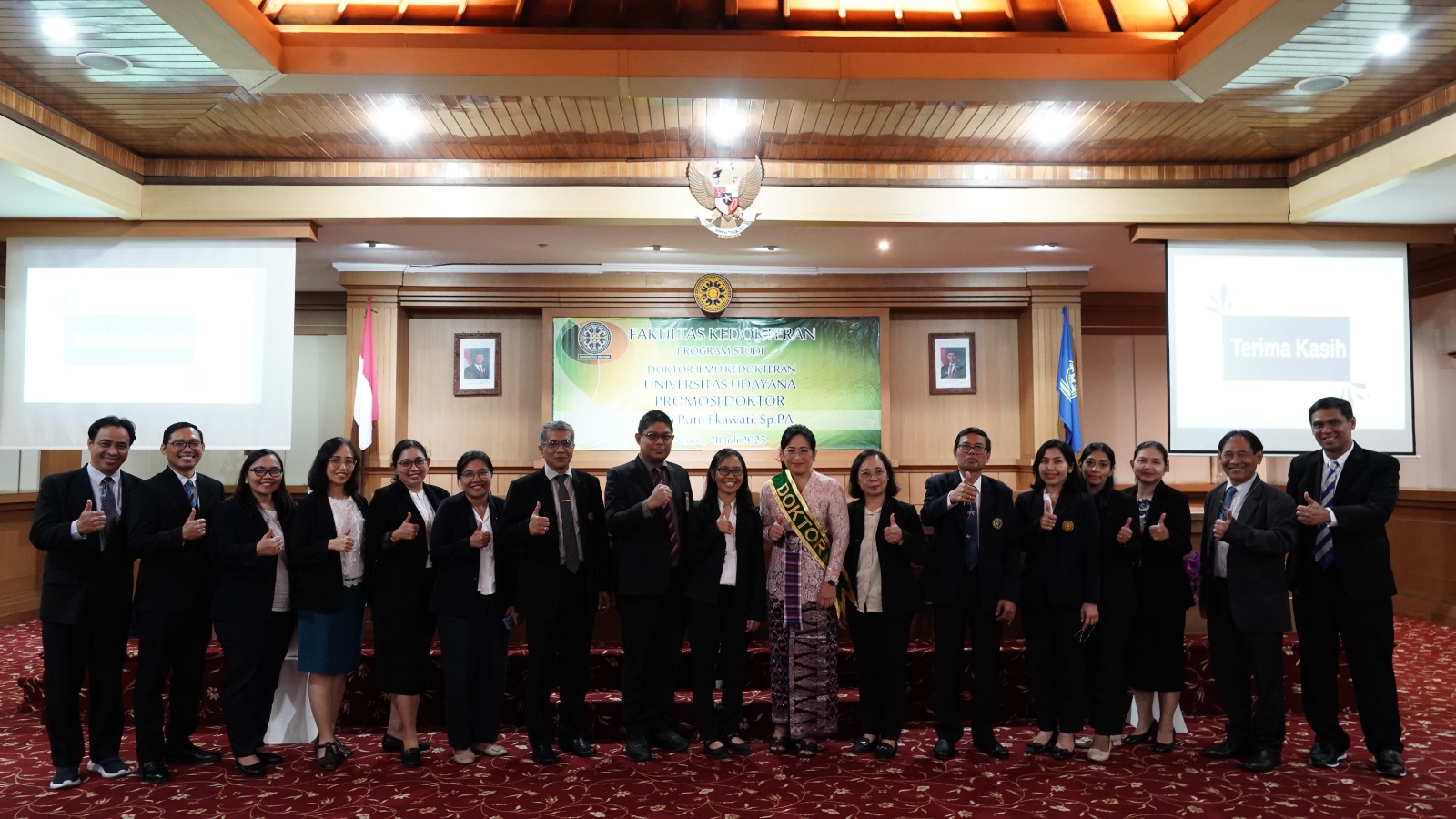
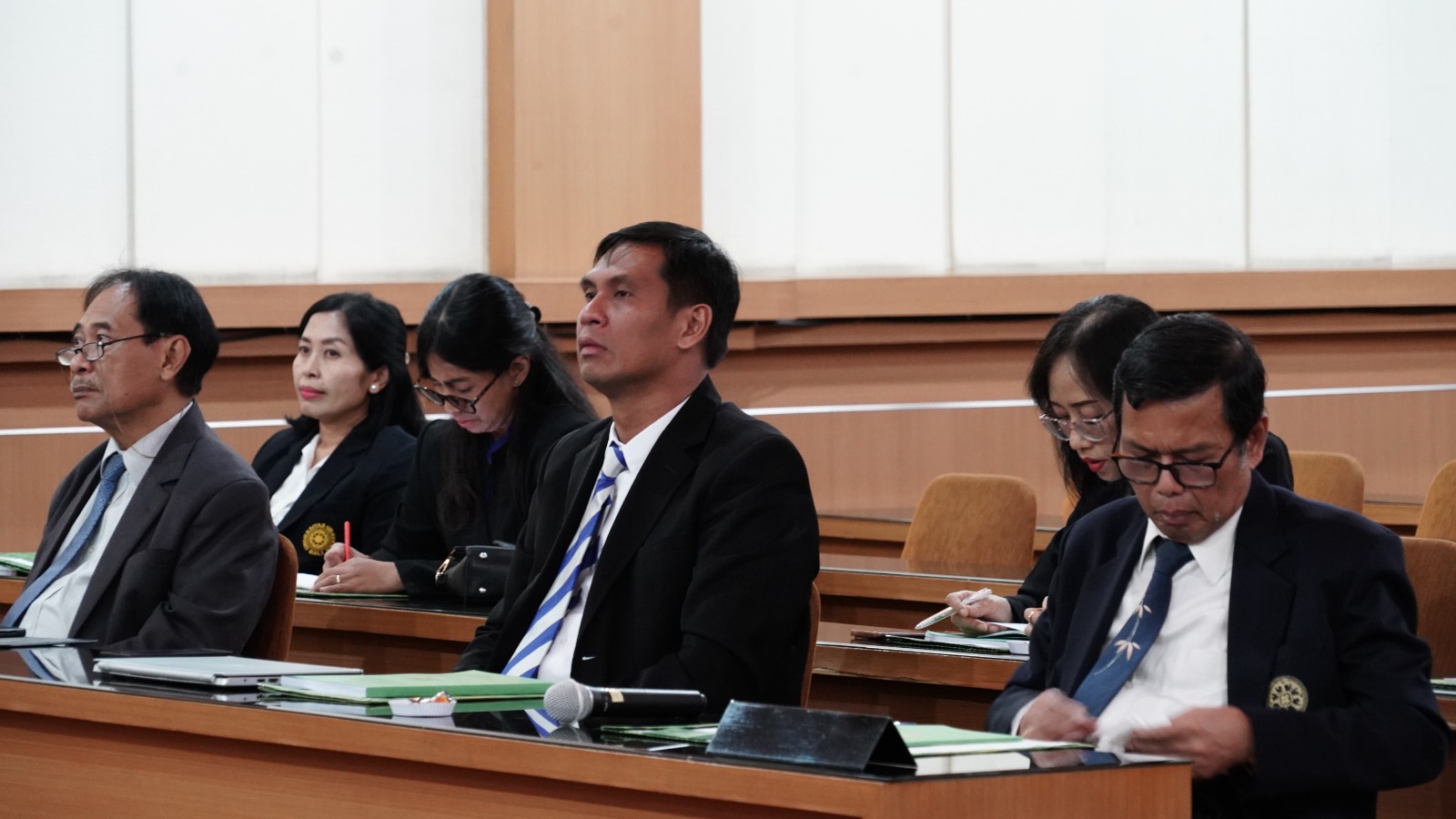



UDAYANA UNIVERSITY